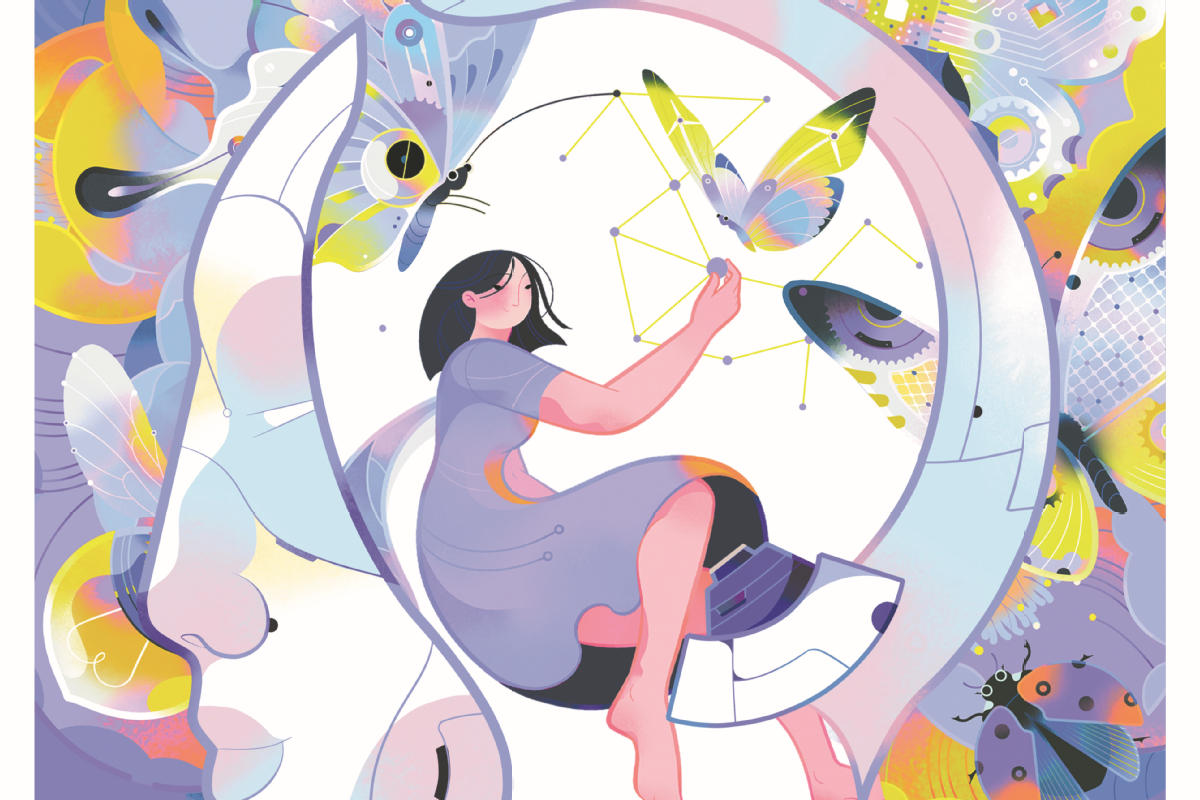When we were young
New documentary sees the leading lights of China's arguably most unique and prolific institution of higher learning tell the stories of their school days, Wang Kaihao reports.

In 2017, in Nanjing, Jiangsu province, after documentary director Xu Bei's interview with Yang Yi was finished, the famous translator, then 98, took out a Walkman and proceeded to relax with some music.
The melody of a vintage English song came from the Walkman-One Day When We Were Young, which is from 1938's Academy Award-winning Hollywood movie The Great Waltz.
"This is my little enjoyment," Yang told the director. She is best known for her Chinese translation of Wuthering Heights.
Xu then immediately decided to borrow the title of the song for her new documentary.
Indeed, it may take a little work to imagine the life of an elderly woman in her 90s as a youngster. Nevertheless, that dramatic contrast created by the flow of time is what Xu wants in the documentary, which will be screened nationwide on May 29. Its Chinese title, Jiulinghou (the post-90 generation), is also a play on words, leading the audience to think it is about those born after 1990.
However, through Xu's lens, 16 interviewees of Yang's age group collectively recall a wartime miracle and perhaps one of the greatest sagas of recent Chinese history. They are all alumni of the National Southwestern Associated University, or simply known as Lianda (the associated university), in Kunming, Yunnan province. Functioning from 1938 to 1946, it became a short-lived but everlasting name in Chinese education.
After Beijing and Tianjin fell to invading Japanese soldiers in 1937 during the War of Resistance Against Japanese Aggression (1931-45), patriotic teachers and students from Peking and Tsinghua universities in Beijing and Tianjin's Nankai University decided to relocate their campuses in a show of determination and disobedience.
They first moved to Changsha, the capital of Hunan province, in November that year. But, as war approached once more, they continued their journey and finally arrived in Kunming in April 1938.
Star names shine among the interviewees in the documentary, including the globally renowned theoretical physicist C.N. Yang; translator Xu Yuanchong, who is known for his promotion of Chinese poems in the English- and French-speaking world; and Wang Xiji, designer of China's first sounding rocket and space launch vehicle. When being interviewed, their average age was 96.
"In this film, we can feel their great expectation and unstrained hearts," Xu Bei said after a preview of the documentary in Beijing earlier this month.
"Their affection and career paths can emotionally resonate with young people today. They are like our mirrors."
Their pursuit of their dreams in their youth was tough. As the interviewees recall in the documentary, living conditions in the thatched cottages were poor, and danger could come any time. They needed to watch out, not only for bedbugs, but also Japanese bombs falling from the sky.
However, the difficulties were not the threshold for Lianda to be a hub for the most brilliant minds in China at the time.
"Young people still need respect for history and care for our country's destiny," Xu Bei says. "And stories of Lianda also urge people today to pursue excellence."
Professors and teachers at Lianda included linguist Chen Yinke, historian Qian Mu, architect Liang Sicheng, philosopher Feng Youlan, physicists Wu Ta-you and Wu Youxun, writers Qian Zhongshu and Shen Congwen, mathematician Hua Luogeng, and many other names who are either cultural icons or founders of Chinese modern sciences.
Students like Xu Yuanchong and Yang thus got a rare chance to be taught by several academic masters for one course. For example, for the Chinese lessons during freshman year, a host of great writers and historians took turns to lecture to the students.
Nevertheless, recalling this precious experience, the feedback of the students still varies decades later.
Translator Xu Yuanchong passionately exclaims in the documentary: "It is the best Chinese lesson I've ever had!"
But as a physicist who keeps a rigid attitude in natural science analysis, Yang says: "I don't think that methodology is the best one, because each teacher has his own style and lacks a consistent syllabus."
For some moments, the aged interviewees-no matter how great a reputation they have-seem to suddenly flash back to their years as youth in college.
They talk about their academic results like they are still envious students. They remember the days of just hanging around with their buddies.
Some recall campus romances, while refusing to admit there is such a thing as love at first sight, which sounds like the story of Pride and Prejudice.
"Even when putting their patriotism aside, we see that they're interesting people, and that they're resilient," the director says. "It also tells today's young people: Don't be boring."
During the war, optimism may have played an important role in helping the students endure tough times, but, as the documentary shows, patriotism is probably still the fundamental motive for the students to work hard to try and create a brighter future for the country.
More than 800 students of Lianda even joined the army to defend their homeland. Miao Hong's story, as recalled by some interviewees in the film, is perhaps one of the most touching in One Day When We Were Young.
He turned his back on his own father, a traitor who served the Japanese-supported puppet government, just to prove his loyalty to his country. He passed the exam to be enrolled in Lianda, and later voluntarily went to the front line, unfortunately dying a few weeks before the war was over.
When Xu Bei and her team tried to turn these yellowing pages of history, they also felt the solemnity of life and death.
In 2018, based on some interviews of those Lianda alumni, her team released a five-episode documentary series, titled Lianda: A Chinese University in War and Revolution. The documentary achieved 9.4 points out of total 10 on Douban, China's major film and TV critic website.
However, when she planned to make some follow-up interviews, three of the interviewees had died, and several more were too sick to talk.
"Then I realized some of them had told their stories in front of camera for the last time in their life," the director recalls. "Their stories deserve our patience. Watching it may be like a ceremony."
"When watching the documentary, I had an epiphany about what a life is and what youth should be," says actress Wang Yuexi.
She plays the role of a librarian from Tsinghua in an upcoming TV drama, titled The National Southwestern Associated University and Us.
"From this group of people who are over 90, you can see their faith and ideology never fade, and their hearts still remain young," the actress says. "For our generation, the film is also a reminder as to why we should work hard to make our country strong."
Zhang Tongdao, a professor of film studies at Beijing Normal University, describes One Day When We Were Young as "a poem".
"It's like a river of flowing time," he comments. "It's also a tribute to history.
"Life then was poor, but people's spirit was not degraded. Lianda proved that 'pure' spirit matters, and thanks to this film, such spirit can be shown to people today."
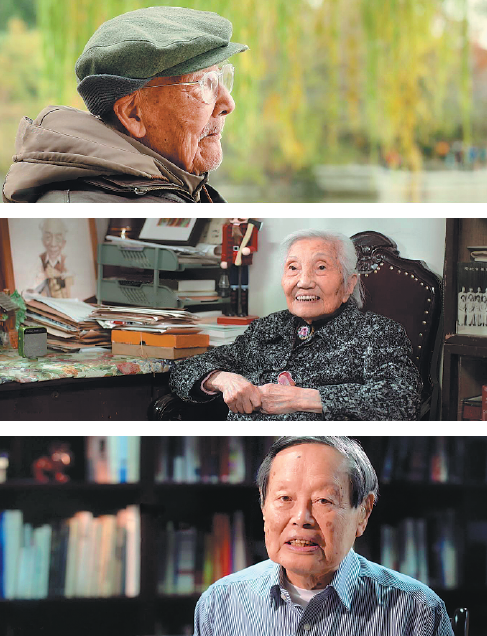
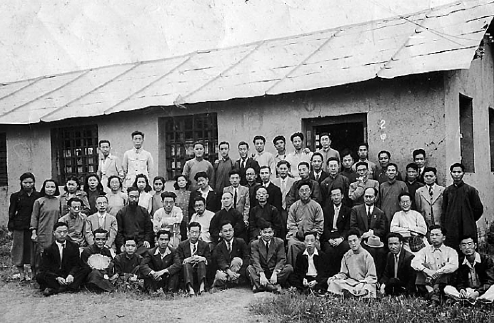
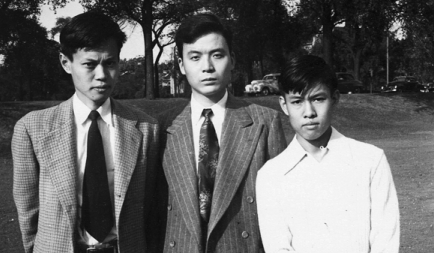
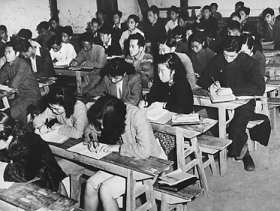
Today's Top News
- Ukraine says latest peace talks with US, Europe 'productive'
- Economic stability a pillar of China's national security
- Xi taps China's deep wisdom for global good
- New rules aim for platforms' healthy growth
- Chinese web literature grows overseas
- Postgrad exam trend points to thoughtful approach


















